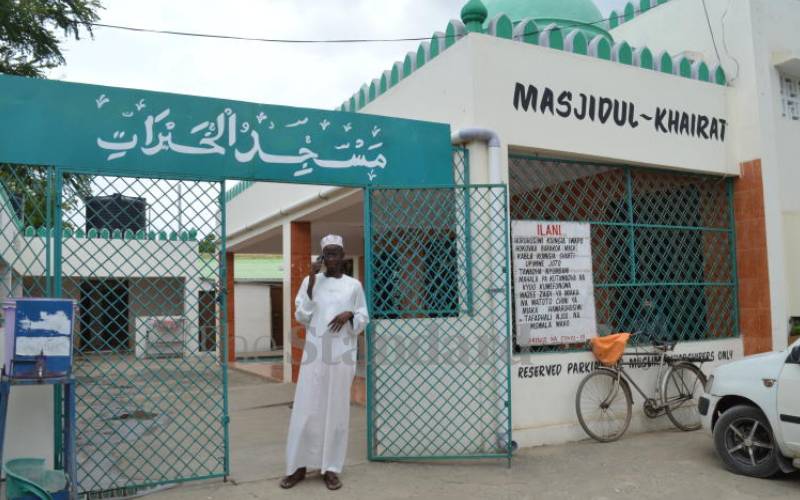×
The Standard e-Paper
Stay Informed, Even Offline

Ustadh Rashid Abubakar at Masjidul- Khairat mosque in Kilifi county on February 2,2022. [Kipsang Joseph, Standard]
Streaks of sunlight streaming through the windows of Masjidul-Khairat Mosque, at the heart of Kilifi town, illuminate the humongous structure that holds hundreds of believers.